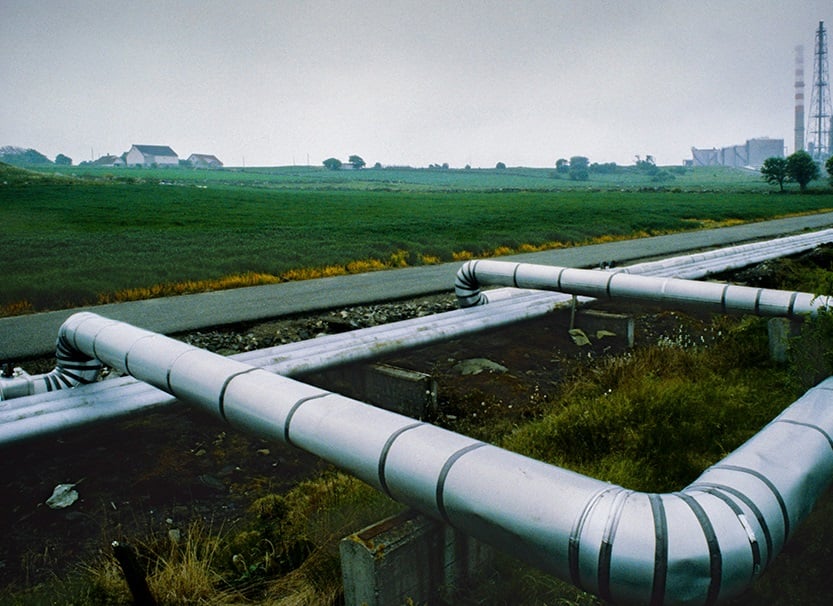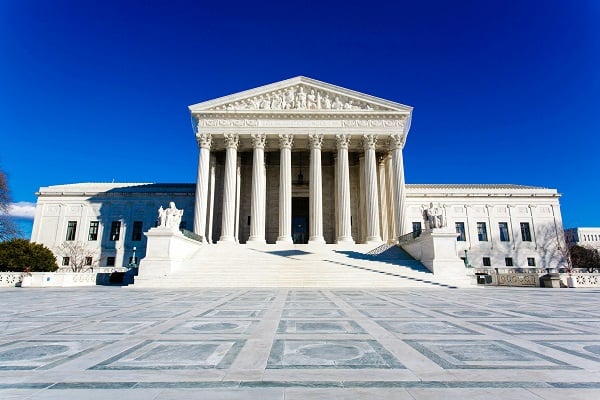
H.R.1: What You Should Know About the Environmental and Energy Provisions in the “One Big Beautiful Bill” Act
On July 4, President Trump signed H.R.1—the “One Big Beautiful Bill,” referred to as the OBBB—into law. This sweeping tax and policy law, enacted through the process of budget reconciliation requiring a simple majority vote by Congress, carries significant implications for environmental funding, clean energy development, and climate-related programs administered by the U.S. Environmental Protection Agency (EPA), as well as the tax code. Much of the provisions affect programs and funding originally authorized under the 2022 Inflation Reduction Act (“IRA”), which was former President Biden’s signature budget reconciliation bill. Below, we outline some of the key features of the OBBB environmental and energy provisions.
Congress Eliminates Corporate Average Fuel Economy (CAFE) Penalties for Passenger Cars and Light Trucks
In one of its many changes, the One Big Beautiful Bill Act, enacted on July 4, 2025, eliminated civil penalties for noncompliance with federal fuel economy standards. Specifically, Section 40006 of the Act amends the language of the Corporate Average Fuel Economy (CAFE) statute to reset the maximum civil penalty to $0.00. Although the statute and its implementing regulations otherwise remain in place, this amendment removes any civil penalties for producing passenger cars and light trucks that do not meet fuel economy requirements.

Agencies Collectively Move to Overhaul Environmental Review Regulations
On July 3, 2025, numerous federal agencies initiated an effort to revise the manner in which they comply with the National Environmental Policy Act (NEPA). NEPA, a cornerstone of environmental governance and project development in the U.S., has historically been implemented through regulations from the Council on Environmental Quality (CEQ). The DC Circuit questioned the legality of those regulations, as well as CEQ’s authority to implement them. And at the direction of President Trump’s February 25, 2025 Executive Order 14154 — “Unleashing American Energy” — CEQ rescinded its NEPA implementing regulations. In place, CEQ provided guidance for agencies that instructed them to update their NEPA procedures by February 2026 in a manner consistent with recent statutory amendments that prioritizes “efficiency and certainty over any other policy objectives.” Today, we are getting our first glimpse into what that process will look like.
EPA Updates Clean Air Act Standards Applicable to Small Waste Incinerators
On June 30, 2025, the U.S. Environmental Protection Agency (EPA) finalized updates to its New Source Performance Standards (NSPS) and Emission Guidelines for Other Solid Waste Incineration (OSWI) units under the Clean Air Act (CAA). These units — combustion systems that incinerate solid waste from commercial or institutional sources not otherwise regulated under specific incinerator categories — include very small municipal waste combustors and institutional incinerators. The final rule includes applicability-related and definitional changes expanding the class of incinerators subject to NSPS, revises the OSWI subcategories and tightens emission limits for key pollutants. It also adopts changes to startup, shutdown, and malfunction (SSM), and expands testing, monitoring, reporting, and recordkeeping requirements that will affect both existing and new OSWI units.

FERC Accelerates Natural Gas Infrastructure Expansion Through Key Waivers and Rulemaking
On January 20, 2025, President Donald J. Trump issued Executive Order No. 14156, Declaring a National Energy Emergency, which directed federal agencies to “identify and use all relevant lawful emergency and other authorities available to them to expedite the completion of all authorized and appropriated infrastructure [and] energy . . . projects.” On June 18, 2025, in alignment with this Executive Order and in response to two petitions filed by the Interstate Natural Gas Association of America (“INGAA”), the U.S. Federal Energy Regulatory Commission (“FERC”) advanced a package of regulatory actions aimed at accelerating the development of natural gas infrastructure.
EPA Proposes to Rescind Two Biden-EPA Fossil Fuel-Fired Power Plant Rules
On June 11, the EPA proposed two Clean Air Act (CAA) rules that would affect fossil-fuel fired electric generating units (EGUs). One rule would repeal greenhouse gas (GHG) standards under Section 111 and the second would repeal the 2024 EPA amendments to the mercury and air toxics (MATS) standards. The proposed rules are a part of the current administration’s stated goal to promote U.S. energy by reducing regulation of the power sector. The EPA estimates that, together, the two rules will save more than $1.3 billion in regulatory costs per year. Here are five key takeaways from these proposals.

EPA Drops Suit Against eBay
On April 24, 2025, the United States, on behalf of the U.S. Environmental Protection Agency, voluntarily dismissed the government’s appeal of a district court order rejecting claims that eBay violated the Clean Air Act (CAA), the Federal Insecticide, Fungicide, and Rodenticide Act (FIFRA), and the Toxic Substances Control Act (TSCA). This means the district court’s dismissal of the case against eBay will stand.
Top 5 Environmental Actions You Should Know from President Trump’s First Day
On January 20, 2025, President Trump began his second term with the signing of 26 executive orders (EOs), which included the recission of almost 80 EOs of the previous administration. Trump’s orders contain both repeals of key Biden Administration policies and calls to agency action to reassess treatment of major environmental issues associated with motor vehicles, energy development, and climate change. Here are the top five actions to know from President Trump’s first day as the new administration begins its reshaping of U.S. environmental policy for his second term in office.
Vermont and New York Climate Acts are First in a Wave of Likely Climate Change Cost Recovery Laws
On May 30, 2024, Vermont’s Republican governor, Phil Scott, allowed Vermont’s S 259 — also referred to as the “Climate Superfund Act” — to become law without his signature. The stated goal of this law is to mitigate the impacts of climate change.

U.S. Fish and Wildlife Service Finalizes Changes to Voluntary Endangered Species Act Programs and Related Permitting Process
On Friday, April 12, 2024, the U.S. Fish and Wildlife Service (the Service) issued a Final Rule making changes to 50 CFR part 13 to clarify and expedite the process for issuing enhancement of survival permits and incidental take permits pursuant to Section 10(a)(1)(A) and (B), respectively, of the Endangered Species Act. The regulatory changes are intended to provide the Service greater flexibility in implementing the permitting process and generate greater conservation results by encouraging additional engagement in voluntary programs associated with these permits, including safe harbor agreements (SHAs), candidate conservation agreements with assurances (CCAAs), and habitat conservation plans (HCPs).


